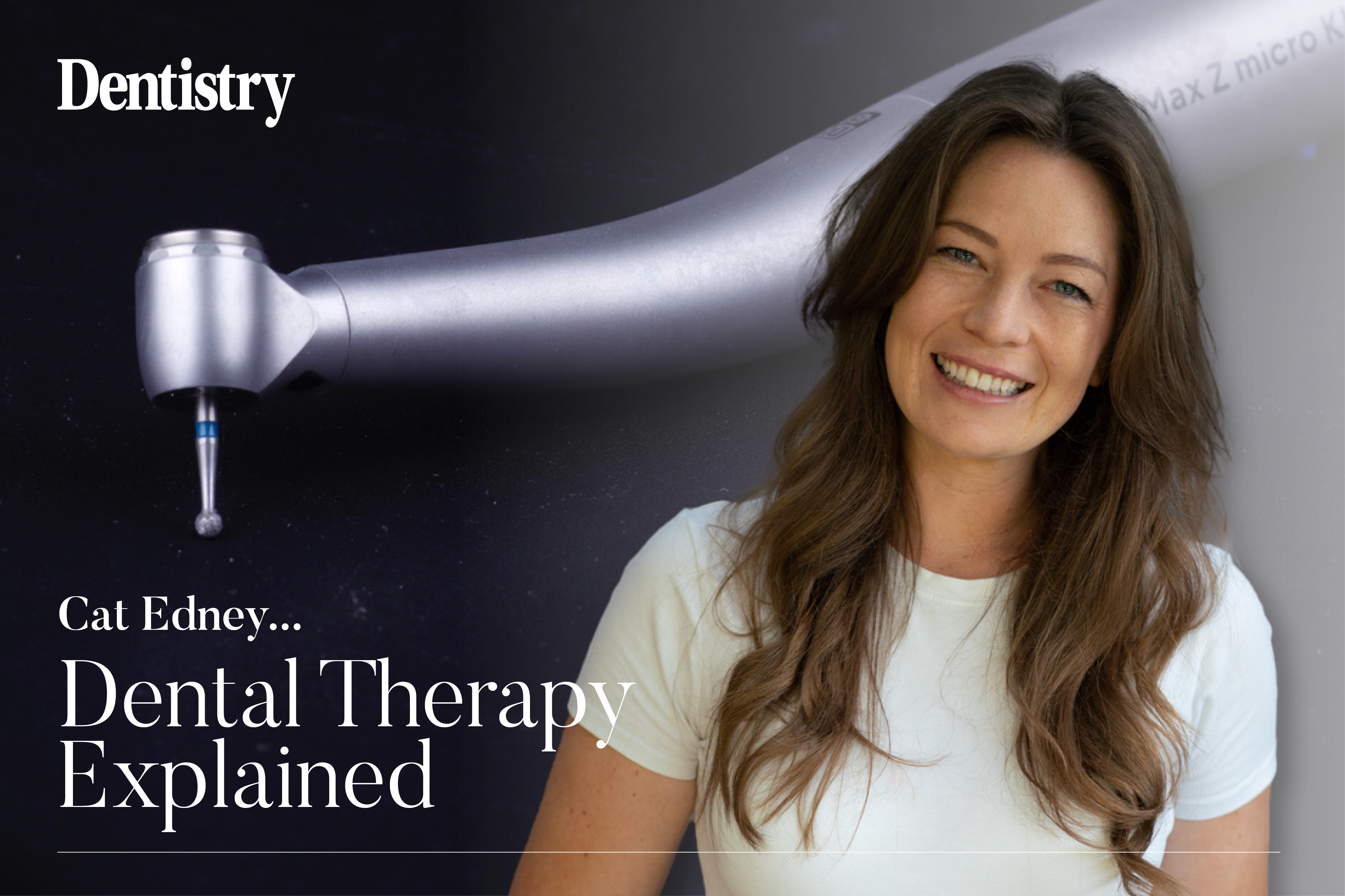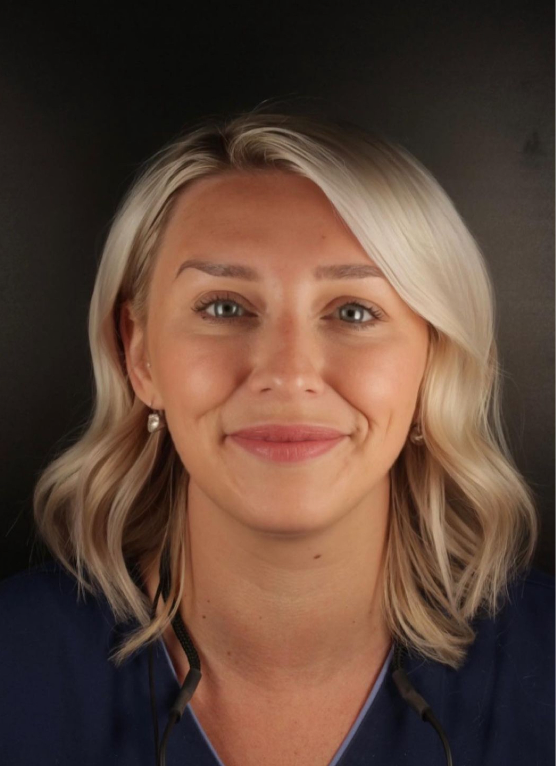
Cat Edney speaks to three dental therapists at different stages of their career to find out what they look for when searching for a new role and what would put them off applying.
The dental landscape has been shifting for some time – where it was once nearly unheard of to utilise the skills of a dental therapist, we are now seeing a rise in demand from progressive, forward thinking dental practices.
Although there has been much news around the difficulties of achieving a shared care arrangement- there is in fact an air of positivity and growth within the dental communities I am so grateful to be part of. Demand for direct access training for new squat practice owners and enquiries about scope and protocols have never been higher, with enterprising dentists wanting to pair with dental therapists in order to increase their turnover ability.
With these dynamic changes in mind, what do dental therapists want when they are looking for roles within practice? I have had the pleasure of speaking with three colleagues who are at different stages of their career to find out.

Charlie Steward, first year dental hygiene and therapy student
Charlie Steward is a first-year dental hygiene and therapy student, studying at the University of Suffolk.
Before starting his degree, he spent two years training and qualified as a dental nurse in November 2023.
His interests lie in the high skilled procedures, including composite bonding and icon treatment.
Outside of work, he has taken part in charitable organisations such as Dentaid.
What made you want to become a dental therapist?
Before I was trained as a dental nurse, I had the goal of completing a degree in dental hygiene. Working under the hygienist during my training, I was taught the scope of practice that hygienists are certified to engage in. Once becoming qualified as a dental nurse, my next step was to push for the opportunity to advance to the position of the hygienist.
In March 2023, I attended the North of England Dentistry Show with a colleague where we attended discussions on dental digitisation. This lecture expanded my perception on the potential of this field of study and cemented the idea of becoming a therapist.
What would your dream role look like when you qualify as a dental therapist?
After completing my degree, I plan to move to London to pursue my career goals. While national service is important to me, I envision myself turning towards private practice, as it would allow me the freedom to perform with the most up-to-date tools and practices to care for my patients.
I am especially interested in composite bonding and icon treatment. To me, it is a goal that I work in an environment where I can utilise these, among other treatments. Outside of work, I’d like to delegate time to partake in charitable organisations like Dentaid.
Have you got any concerns about working as a dental therapist when you qualify?
My primary concern in being qualified as a dental therapist is that my skills will be underutilised. Regarding the perception of therapy, based on my experience in conversations with dentists, it seems as though there is a misunderstanding of what we as therapists are trained to practice.
What I desire is to have the opportunity to use the skills with which I have been trained post-graduation. If I am unable to do this, I will be, regardless of title, a hygienist, making this qualification without purpose. I desire the ability to use my scope of practice to the full and to become highly regarded in the field.
What kind of things would put you off applying for a job at a practice?
Working without a nurse, full stop. It has been stressed to me the importance of working with a nurse for all manner of reasons. I will ensure I take this advice with me when seeking employment in my future.
The underutilisation of my scope of practice would also be a deciding factor. To work in an environment where I can practice my learned expertise is what will allow me to retain these skills.
Additionally, a practice that disregards the perspectives of its employees. My goal is to be always progressive and to fulfil the patient’s needs. A practice that doesn’t allow its clinicians to be progressive isn’t one I’d represent.
Monika Krumova, recently qualified dental therapist
Monika Krumova (@monika.dental) qualified in dental hygiene at the University of Essex 2021 and dental therapy in 2022.
She works as a dental therapist at Dental Beauty Greenhithe, Dental Beauty Swanscombe and Orchard House in Headcorn.
Her interests lie in restorative dentistry and full scope working.

What is your current job like as a dental therapist?
My current job as a therapist is very rewarding. I work in two practices which are both mixed (NHS and private practices). At my practice in Headcorn, I am providing check-ups and treatment for children as well as long term adult patients. I feel real job satisfaction from being able to work to my full scope of practice and also have a good balance in knowing that if I need advice or help with anything I am able to liaise with my dentist colleagues who are more than happy to offer guidance or pop into my surgery.
At my other practice I also do NHS children’s check-ups but also carry out private treatments under referral, such as tooth whitening or composite restorations (I absolutely love restorative dentistry so am always grateful to see an appointment where I can use those skills).
I feel I get referred treatments that definitely push me out of my comfort zone at times (such as restoring a tooth with very extensive caries) but I find these same treatments are the very ones to help me learn and improve my skills.
As a recently qualified therapist, what were you looking for when looking at job roles? Did anything put you off applying for roles?
When looking for a job, I was really looking for somewhere that would trust me enough to allow me to carry out check-ups and treatment. I have had many interviews in which I told the interviewer what I’m able to do and what I feel confident in doing and they continued to try and put me in a box of hygiene only.
I did my hygiene qualification in Essex which was two years and then separately went on to do the therapy qualification immediately after, and having spoken to many dental hygiene colleagues (including Cat at one point) I knew that if I didn’t get a therapy job straight away, I may lose those skills or, in turn, lose my confidence to ever use them. Therefore, I wanted to find a job that pushed me out of my comfort zone and would let me use my therapy skills.
What is the biggest struggle for you as a therapist undertaking your full scope?
Sometimes it can be having the time to communicate with colleagues and treatment plan patients as we can all be so busy at work, so this does sometimes mean having to email each other outside of work etc. I also find that sometimes we get the patients that the dentists don’t want to deal with or the patients that can be a bit tricky. I have never refused anything (yet) as I love a challenge, but I have definitely struggled with some subgingival caries on distal of sevens!
I also find it difficult that we still need to ask for a prescription for something as simple as fluoride varnish or local anaesthesia when we are providing NHS care.
How do you think patients feel about seeing a dental therapist? Do you do anything specific to explain your role to them?
I definitely feel like patients are starting to understand the role of a dental therapist more and more. I always read social media forums which definitely helps me, and one of the lines that I picked up from there is that ‘therapists have done the same training as the dentist for the first three years, but then the dentists go on to learn how to do crowns, bridges, dentures and we did not’.
I always tell them if there is something I’m unable to help you with I will refer you to a colleague or I will seek a second opinion.
What would your ideal job look like?
My ideal job would actually be what I think is potentially the ‘American model’, where we do a hygiene and check-up in one, and then treatment plan and send anything out of scope to the dentist. I feel like I am using my full scope as a therapist, but definitely want to integrate hygiene and therapy more as they do go hand in hand.
I feel my hygiene appointments are so thorough and I check all the teeth check the charting. The only thing that I don’t do is the X-rays because the dentists prefer doing their own check-ups sometimes.

Holly Hubery, dental therapist
Holly Hubery (@hollyhdentaltherapist) is a dental therapist with a passion for dentistry who thrives on constant learning and the challenges dentistry offers.
Holly says: ‘Embracing my full scope of practice allows me to continually grow and provide the best care for my patients.
‘I have a forward-thinking mindset which drives my focus on opportunities and solutions creating innovation and a bright outlook on the future for dental therapy’.
What is your current job like as a therapist?
My current job as a dental therapist is both demanding and rewarding within two private practices – Queensway Dental and Hampstead’s in the north east of England. I have autonomy in treatment planning but also collaboration with specialist dentists. My role involves conducting children’s check-ups which I have been carrying out for around seven years, ensuring the oral health of our youngest patients.
Additionally, for the last three years, I’ve been performing comprehensive adult dental health reviews. This involves performing a check-up, conducting a hygiene maintenance visit with EMS and guided biofilm therapy, and taking and analysing radiographs if necessary. It also involves planning treatments as per the patient’s needs and providing personalised oral health advice to ensure the patient’s overall dental wellbeing. My focus is on providing personalised care to all patients, tailored to their unique needs.
I also have great support from a team of dental hygienists and therapists which makes for a fulfilling professional environment. Working within a multidisciplinary team allows for diverse perspective and enhance patient care. I am currently studying towards the Smile Academy postgraduate diploma in restorative and aesthetic dentistry to improve my skills and enhance my ability to provide comprehensive treatments to my patients, further enriching my practice.
As an established therapist, what would you look for when looking at job roles? Would anything put you off applying for roles?
As an established dental therapist who has recently taken on a new job role alongside my current practice, I was looking for an enterprising, forward-thinking dental practice that values my skills and expertise. I was also looking for a workplace that encourages the dental therapy model and supports my involvement in check-ups and treatment planning, while also embracing new dental technologies which is crucial for professional growth and patient care.
Teamwork and a commitment to advancements in dental care are key components of a stimulating and progressive work environment. It is not only important to find an employer who recognises your expertise, but also compensates you accordingly as this ensures a mutually beneficial relationship where your dedication and high-quality work is rewarded.
I would be put off applying for a role that was restricted to prescription only appointments or solely hygiene work. Seeking positions that align with your expertise and interests ensures job satisfaction.
What is the biggest struggle for you working as a therapist undertaking your full scope?
My biggest struggle working as a dental therapist and undertaking my full scope is time. Returning routine patients fills diary space very quickly. I would like to implement effective scheduling strategies to optimise workflow and allow for treatment time and a diversity in the working day.
How do you think patients feel about seeing a dental therapist? Do you do anything specific to explain your role to them?
Patients now are comfortable, relaxed and confident seeing a dental therapist – this has developed over time. While the name ‘dental therapist’ may initially cause confusion with some patients, it’s a great opportunity to educate them about the dental therapists scope of practice and the valuable services we can provide.
I often use analogies to explain my role and the types of treatments i can offer which helps to alleviate any confusion and build trust with patients. Additionally, emphasising my further qualifications and experience reassures patients of my competency in providing the dental care they need.
How do you manage communication between yourself, your dentist and DCP colleagues?
Effective communication within the multidisciplinary team is built on mutual respect and shared understanding of the patient care goals. This is carried out within the practice through conversations directly with the dentist or DCP, or with tasks such as certain radiograph reports, collaborative treatment plan approval, emails and team huddles.
When team members respect each other’s expertise and perspectives they can collaborate more efficiently which leads to better outcomes for patients. Understanding the patient’s needs and preferences is paramount, and clear communication ensures that everyone is working towards the same objectives. This cohesive approach enhances the overall quality of care and patient satisfaction.
What would your ideal job look like?
My ideal job aligns perfectly with my passion for providing comprehensive care and utilising my full scope of practice as a dental therapist. Being part of a supportive team, having a varied diary and feeling valued are crucial factors in creating a fulfilling work environment.
Additionally, being involved in delivering training, leadership and education for advancement and personal growth are also importnat. This would support the direction of the team and the broader impact on patient care, practice operations and improving oral health.
Finding a position that offers these aspects would undoubtably lead to a rewarding and satisfying career.
Catch up with Cat’s previous columns:
- Introducing the ‘associate dental therapist’
- New year, new personal development plan
- Getting off the green mile
- Creating confidence in dental therapy
- Dental therapists – recruitment, renumeration, retention.
Follow Dentistry.co.uk on Instagram to keep up with all the latest dental news and trends.


